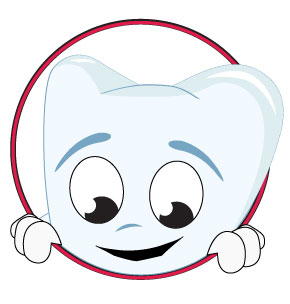Fluoride & You Child
Fluoride is a mineral that exist naturally in soil, water and various foods. Fluoride works by strengthening the tooth enamel making teeth stronger and more resistant to decay.
All people ingest the mineral to some extent on a daily basis. In addition, approximately 40% of Canadians receive fluoride in their community water supply. Fluoride is also used by individuals in the form of consumer products such as toothpaste and rinses, and by dental professionals in the professional application of fluoride treatments.
It's important for parents of children under the age of 6 to be aware of their child's exposure to fluoride. This means finding the right balance to maximize the benefits of fluoride exposure while minimizing the potential of contributing to dental fluorosis – too much fluoride.
Parents should supervise the tooth brushing of young children under six years of age. Children under three years of age should have their teeth brushed by an adult using only a smear of fluoride free toothpaste. When children are able to spit, they should use only a pea-size amount of fluoride toothpaste on a toothbrush and minimize swallowing. Fluoride mouth rinsing is not recommended for children under six years of age.
Your dentist is able to assess your child's risk of developing tooth decay and advise you of an appropriate level of fluoride protection.






